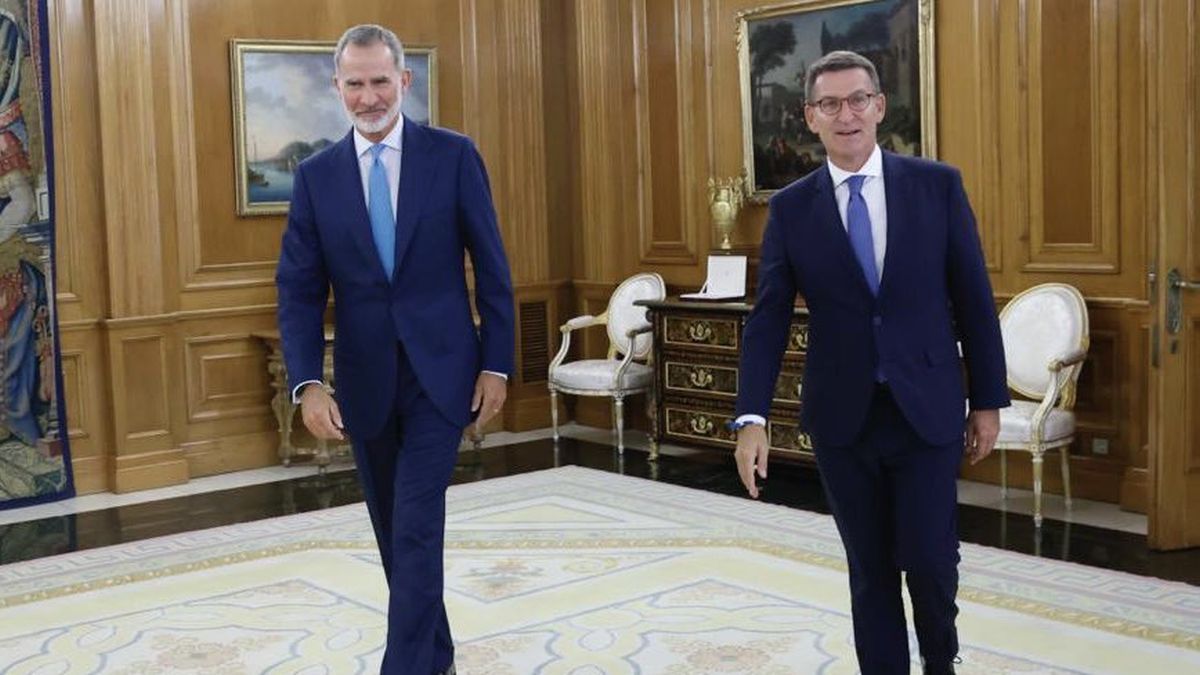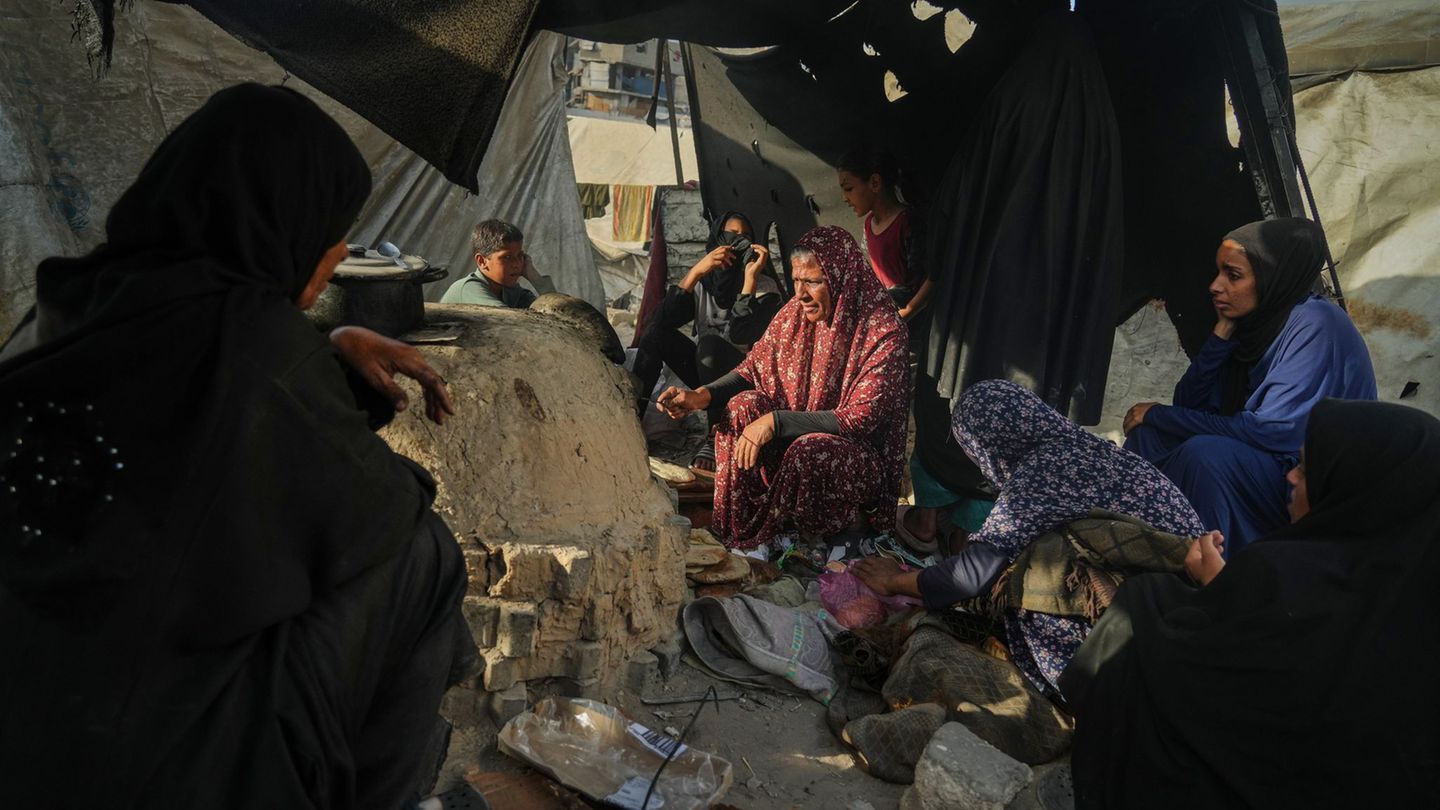The king made the decision after consulting with representatives of the parties that won parliamentary seats in inconclusive elections on July 23 where they determined whom they would support in the investiture vote.
“We will give a voice to the more than 11 million citizens who want change, stability and moderation with a government that defends the equality of all Spaniards,” he published. Feijóo on the X messaging platform, formerly known as Twitter, while thanking the king for the mandate: “I thank HM the King for his decision to nominate me as a candidate for the Presidency of the Government”.
https://publish.twitter.com/oembed?url=https%3A%2F%2Ftwitter.com%2FNunezFeijoo%2Fstatus%2F1694055633081807007%3Fs%3D20&partner=&hide_thread=false
I thank HM the King for his decision to nominate me as a candidate for the Presidency of the Government.
We will give a voice to the more than 11 million citizens who want change, stability and moderation with a Government that defends the equality of all Spaniards. pic.twitter.com/fLqCBiZoir
— Alberto Núñez Feijóo (@NunezFeijoo) August 22, 2023
The PP will try to form a government
No party or bloc won an absolute majority of seats in the early general elections. Feijóo’s PP won the largest number of seats -137- and so far has the support of 35 other deputies, including the far-right Vox, making a total of 172.
Earlier on Tuesday, the incumbent president, Pedro Sánchez said he believed his socialist party would be able to “gather the necessary parliamentary support” to form a government.
Although the PP received the most votes, Sánchez, in power since 2018, was in a better position to be re-elected at the head of another progressive coalition, allied with forces -including pro-independence and nationalist groups- that would allow him to reach an absolute majority in The deputies congress.
Feijóo will need the support of 176 legislators out of 350 deputies of the Lower House to obtain the position or, failing that, a simple majority of more votes in favor than against in a second vote. If he does not achieve the required support in these instances, the king will have to choose a new candidate.
pedro sanchez.jpg
Pedro Sánchez, president of the Spanish government.
The PSOE, with the necessary votes
Sanchez He told the press that he told the king that he was capable of obtaining “the sufficient majority”, as in his opinion it was evidenced last week when the Congress of Deputies appointed his candidate, the socialist Francina Armengol, president, with the support of 178 deputies, including the seven from the pro-independence party Together for Catalonia (JxC).
“There is only one possible parliamentary majority, a progressive majority led by the PSOE. There is no other alternative than to reissue a government of progress,” said Sanchez at a press conference at the Government headquarters in Madrid after being received in audience at the Palacio de la Zarzuela on the second and last day of consultations between the king and the leaders of the different parties.
The PSOE leader said that the investiture process “is not a show procedure, but rather has the purpose of achieving a sufficient majority”, and that in his opinion the possible alternative of the PP led by Feijóo is “wasteful” and his investiture it would prove “unsuccessful”, even with the support of its potential partners in the far-right Vox party.
Sánchez has already secured the support of the 121 of the PSOE and the 31 of the leftist coalition Sumar. With the backing of the other parties he is negotiating with, including JxC, he would get 178 votes, two more than an absolute majority.
In a demonstration of the strength of the left bloc, Sánchez’s Socialists succeeded in having their candidate, Francina Armengol, named president of the lower house last week.
If no candidate obtains a majority in the two months following the first vote, new elections must be called.
Source: Ambito




